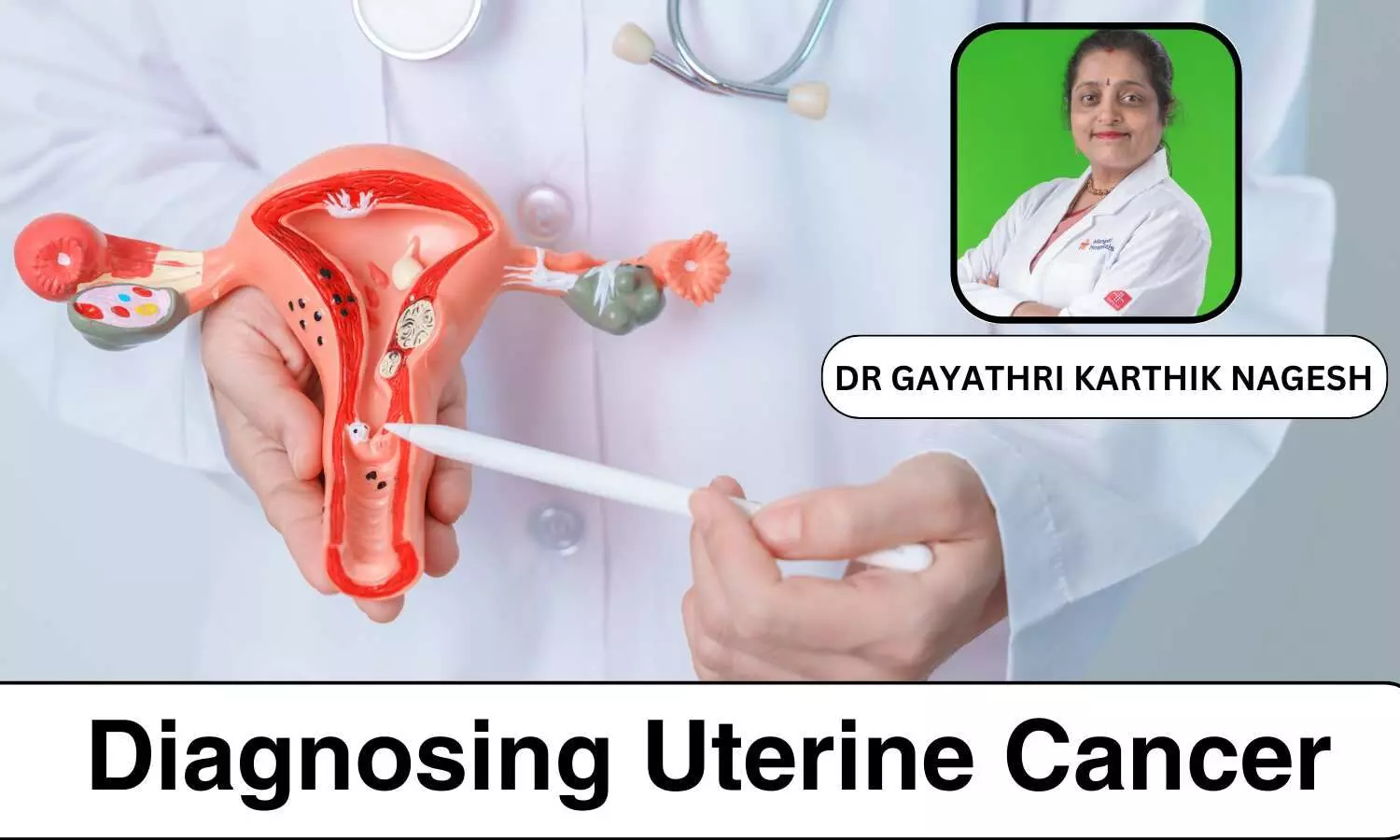What are the risk factors that can amplify the importance of early symptoms in diagnosing uterine cancer? - Dr Gayathri Karthik Nagesh

Uterine cancer, which predominantly manifests as endometrial cancer, ranks among the most common gynaecological malignancies. Early detection is paramount for successful treatment and favourable outcomes. Certain risk factors can amplify the importance of recognizing early symptoms of uterine cancer. These risk factors can help healthcare providers and patients be more vigilant in monitoring for early signs, leading to timely diagnosis and treatment.
Risk Factors Amplifying the Importance of Early Symptoms
1. Age
Postmenopausal Women: Age is a major risk factor for uterine cancer for women over 50 years of age. Thus, the presence of postmenopausal bleeding can be a cause of concern because it is a hallmark indicator of potential endometrial pathology. Thus, any kind of bleeding that occurs after menopause must be examined by a gynaecologist.
Perimenopausal Women: Women during their perimenopausal phase experiencing abnormal bleeding or changes in menstrual patterns should also be cautioned and get themselves monitored. This period is when hormonal fluctuations commonly occur, however, it is important to distinguish between normal perimenopausal changes and potential malignancy.
2. Obesity
Obesity, another major risk factor for uterine cancer, occurs due to excess adipose (fatty) tissue increasing estrogen levels in the body. This causes hyperplasia– it is known as the precursor to cancer, and then may lead to potentially cancerous changes in the endometrium over time. Early symptoms like abnormal vaginal bleeding spotting, or discharge experienced by obese women should prompt proper evaluation.
3. Hormone Therapy
Estrogen Replacement Therapy (ERT): Women receiving estrogen replacement therapy without the counterbalancing effect of progesterone are at higher risk for endometrial cancer. This is due to the fact that unopposed estrogen stimulates the growth of the uterine lining. These women should be wary of common early symptoms, including unusual vaginal bleeding or spotting.
Use of Tamoxifen: Tamoxifen is a common drug to treat and prevent breast cancer. It has estrogenic effects on the uterus, thus increasing the risk of endometrial cancer. Women using tamoxifen should consider close monitoring and look for early signs like vaginal bleeding or discharge.
4. Reproductive History
Nulliparity: Women who have never given birth are at an increased risk for cancer of the uterus. Pregnancy and childbirth offer protective hormonal changes in women. These changes help reduce the risk of endometrial cancer. Thus, nulliparous women should be particularly vigilant and watch out for unusual symptoms.
Early Menarche and Late Menopause: Prolonged menstrual cycle history, which is characterized by early menarche and late menopause, is associated with increased exposure to estrogen production. This causes a high risk of uterine cancer. These women should be careful and report wary symptoms like abnormal bleeding to a doctor.
5. Genetic Factors
Family History: Women with a family history of cancers such as ovarian, uterine, or colorectal cancer can elevate their risk of developing uterine cancer. All these women should consider undergoing genetic counselling and be vigilant about any early symptoms that may indicate a potential endometrial pathology.
Lynch Syndrome: Also called hereditary nonpolyposis colorectal cancer (HNPCC), Lynch syndrome is known to increase the risk of various cancers, including endometrial cancer. Women with this genetic predisposition must be highly attentive to the early symptoms and undergo screening at regular intervals to detect and prevent uterine cancer in its early onset.
6. Certain Medical Conditions
Polycystic Ovary Syndrome (PCOS): Women with PCOS often experience irregular menstrual cycles and prolonged exposure to unopposed estrogen, which is an increasing risk factor for endometrial hyperplasia and cancer. Therefore, symptoms like irregular bleeding or prolonged periods should be promptly investigated.
Diabetes: Diabetes is associated with an increased risk of uterine cancer. Women with diabetes should be particularly cautious about early symptoms like abnormal bleeding or discharge.
Early Symptoms of Uterine Cancer
1. Abnormal Vaginal Bleeding is the most common early symptom of uterine cancer. This includes:
- Postmenopausal bleeding
- Intermenstrual bleeding
- Excessively heavy periods
2. Pelvic Pain, Pressure, or a Feeling of Fullness in the Pelvic Area, particularly when they persist without a clear cause
3. Unusual Vaginal Discharge such as Non-bloody, watery, or foul-smelling vaginal discharge
4. Unexplained Weight Loss and Fatigue
Given the increased risk associated with the aforementioned factors, any occurrence of these symptoms should be promptly evaluated through diagnostic methods like transvaginal ultrasound and endometrial biopsy.
The presence of certain risk factors significantly amplifies the importance of early symptoms in diagnosing uterine cancer. Age, obesity, hormone therapy, reproductive history, genetic predispositions, and specific medical conditions - all these risk factors increase the need for women to be more vigilant in order to identify and report early signs of the disease. Regular screenings and proactive healthcare measures are crucial for these high-risk women to detect uterine cancer at its earliest and most treatable stages.


